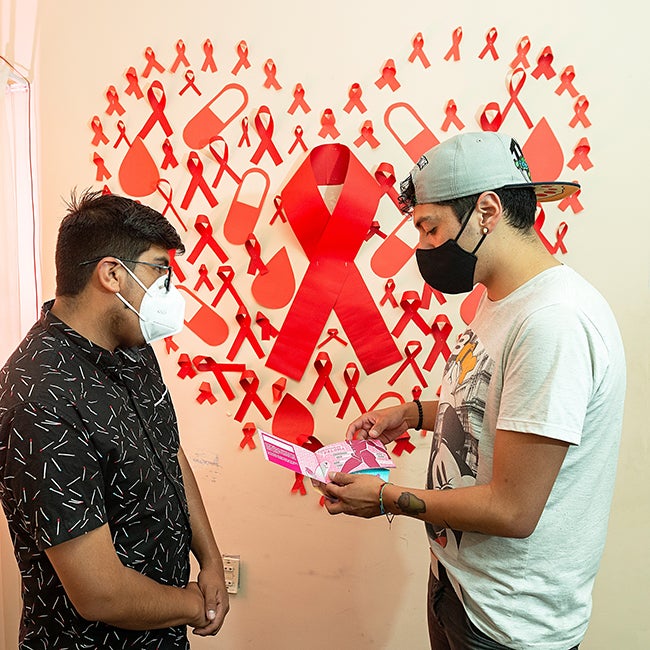Consortium for Epidemiological Surveillance and Monitoring of HIV/STI and Tuberculosis in the Americas
The collection of information and its consolidation, analysis, and application are essential for designing strategies and making program decisions for HIV, STI, and tuberculosis prevention and control. Based on its technical cooperation experience, the Pan American Health Organization (PAHO) sees the need to develop and strengthen these capacities. PAHO has therefore created the “Consortium for Epidemiological Surveillance and Monitoring of HIV/STI and Tuberculosis in the Americas.”
Registration Form
What is the Consortium?
The Consortium for Epidemiological Surveillance and Monitoring of HIV/STI and Tuberculosis in the Americas is a platform comprised of health sector professionals involved in collecting, consolidating, analyzing, and disseminating strategic information on HIV, STIs, and tuberculosis in the countries of the Region. The Consortium is aimed at regional professionals from governmental institutions, academia, health service provider institutions, civil society organizations, and cooperation agencies.
The Consortium has an easily accessible platform for stakeholders and other users that promotes dialogue, sharing of experiences, and learning opportunities to professionals from the Region.
General objective
Following guidance from the World Health Organization (WHO) and other international agencies, the Consortium seeks to improve the generation and analysis of data on HIV/STI and tuberculosis in the Region, fostering opportunities for dialogue, capacity building, and the sharing of experiences in epidemiological surveillance and monitoring of these public health problems.
Specific objectives
- Identify national and local HIV/STI and tuberculosis standards and highlight tools and successful experiences that will contribute to the development of regional standards.
- Provide support to countries to strengthen their HIV/STI and tuberculosis information systems, as well as their analysis and use of data.
- Upgrade the skills and expertise of human resources involved in collecting, organizing, consolidating, analyzing, and disseminating strategic information on HIV/STI and tuberculosis.
- Build capacity for epidemiological surveillance of HIV/STI and tuberculosis and monitor health services in these programs.
- Disseminate recommendations and tools to improve data quality and analysis, as well as the application of data to planning, monitoring, and evaluation of the impact of the HIV/STI and tuberculosis response in the countries.
PAHO/WHO Guidelines
text
text

